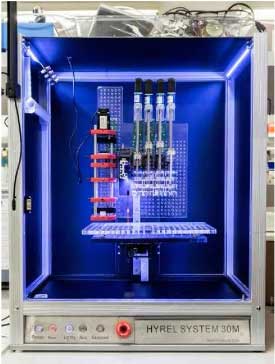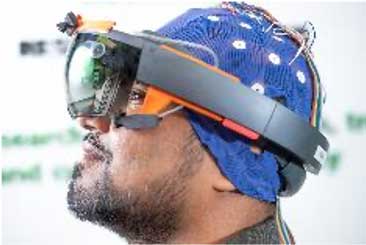Enormous advancements in health care can provide correspondingly enormous impacts in Defence applications. Our research spans:
Human: performance, rehabilitation and acute monitoring
- Wearable technologies
- Tissue engineering
- Prostheses
- Imaging
- Tele-health
Materials: biofabrication and extreme conditions
- Bioprinting and interfaces
- Surface modification
Surveillance: detection and tracking
- Sensors and AI

While the human brain remains unparalleled in its ability to perform highly sophisticated information processing on extremely limited energy resources, our research in the field of nanoelectronics aims to lead to the development of a new breed of tiny intelligent devices to collectively emulate this capability in hardware more closely than ever. Such devices are expected to be able to solve a wide range of issues involving sensory perception. Understanding the influence of the electrical properties of the body can enable us to learn more about neural and cell signalling, leading to better design of electronic implants and ultimately a better understanding of how the brain works. In parallel with the Medical Imaging theme, imaging technologies are pervasive in our lives, from the camera on our smartphone to the MRI system capable of showing the structure of our brain in exquisite detail. Our researchers are developing new and improved applications of these technologies within the field of biomedical engineering, enhancing our knowledge of living tissues in both classical hospital settings but also in portable devices. Our biomedical engineers are part of the DIN Defence Industry Quantum Research Consortium: Quantum Sensing of Magnetic Fields which includes the exploration of applications in the medical field.
